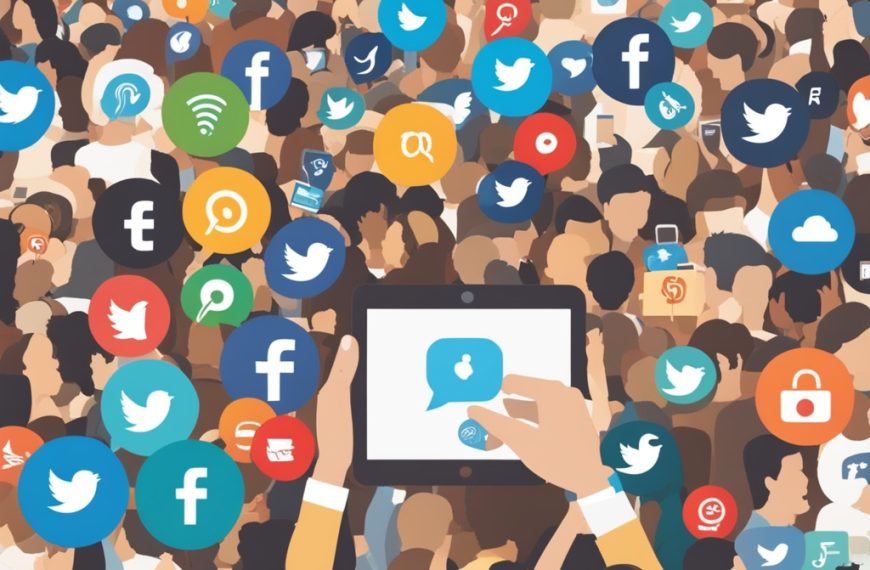Social media and digital marketing have transformed the way businesses connect with their audiences. With rapid technological advancements, evolving consumer behavior, and the rise of artificial intelligence (AI), the future of these industries promises even more innovation and disruption. This article explores key trends shaping the future of social media and digital marketing, providing insights into what businesses and marketers can expect in the coming years.
1. The Rise of Artificial Intelligence and Automation
AI is already revolutionizing digital marketing and social media management, and its impact will only grow. Machine learning algorithms analyze user behavior, optimize ad targeting, and automate customer interactions through chatbots and virtual assistants. AI-driven content generation and predictive analytics will enable brands to personalize marketing efforts at an unprecedented scale.
Key Implications:
- AI-powered chatbots and voice assistants will handle customer inquiries more efficiently.
- Predictive analytics will enhance campaign performance by forecasting trends and user preferences.
- Automated content creation will streamline social media marketing, making it more cost-effective.
2. The Evolution of Influencer Marketing
Influencer marketing has proven to be an effective strategy for brands, but its future will see a shift toward authenticity and micro-influencers. Consumers are becoming more discerning, favoring real connections over sponsored content.
Key Trends:
- Brands will collaborate with micro and nano-influencers who have highly engaged, niche audiences.
- AI-driven influencer identification tools will help businesses find the right influencers based on engagement metrics rather than follower count.
- Transparency in sponsored content will be crucial, with stricter regulations on influencer marketing.
3. The Dominance of Video and Short-Form Content
Video content, particularly short-form videos, will continue to dominate social media. Platforms like TikTok, Instagram Reels, and YouTube Shorts have demonstrated that short, engaging videos capture audience attention more effectively than static posts.
What to Expect:
- AI-enhanced video editing tools will make content creation more accessible.
- Live streaming and interactive video content will grow in popularity.
- Brands will focus more on storytelling through video to foster deeper emotional connections with their audience.
4. The Rise of Augmented Reality (AR) and Virtual Reality (VR)
AR and VR are poised to revolutionize digital marketing by creating immersive brand experiences. From virtual try-ons to interactive ads, these technologies will enable consumers to engage with products and services in new ways.
Key Developments:
- Social media platforms will integrate AR filters and VR shopping experiences.
- Brands will leverage AR for product demonstrations and experiential marketing.
- Virtual events and metaverse experiences will reshape customer engagement.
5. Personalization and Data-Driven Marketing
Consumers expect brands to deliver personalized experiences, and data-driven marketing will become even more sophisticated. Businesses will use AI to analyze consumer behavior and tailor content, product recommendations, and advertisements.
Future Strategies:
- First-party data collection will become essential as third-party cookies phase out.
- Hyper-personalized email and social media campaigns will drive higher engagement.
- AI-driven dynamic content will enable brands to deliver personalized messages in real-time.
6. Social Commerce and Seamless Shopping Experiences
Social commerce—the integration of e-commerce within social media platforms—will continue to grow. Consumers increasingly prefer shopping directly from platforms like Instagram, Facebook, and TikTok without leaving the app.
Trends to Watch:
- More brands will set up social media storefronts.
- AI-driven product recommendations will enhance user experience.
- Livestream shopping events will become more prevalent.
7. Ethical and Sustainable Marketing
Consumers are more socially conscious than ever, demanding ethical and sustainable business practices. Brands will need to demonstrate genuine commitment to social and environmental issues to build trust and loyalty.
Expected Changes:
- Increased focus on sustainability in advertising and product offerings.
- Transparent marketing strategies to build consumer trust.
- Brands engaging in corporate social responsibility (CSR) campaigns to resonate with their audience.
8. The Importance of Privacy and Data Security
As consumers become more concerned about data privacy, businesses must prioritize secure data collection and transparent practices. Stricter regulations, such as the General Data Protection Regulation (GDPR) and California Consumer Privacy Act (CCPA), will require companies to handle user data responsibly.
Future Implications:
- Brands will need to adopt privacy-first marketing strategies.
- Transparency in data collection and usage will become a competitive advantage.
- Secure, consent-based advertising will be essential for customer trust.
The future of social media and digital marketing is dynamic, with technology, consumer expectations, and regulatory changes driving constant evolution. Businesses that stay ahead of these trends and adapt to new innovations will be best positioned for success. Marketers must embrace AI, video content, personalization, and ethical practices to create impactful and engaging digital strategies. As social media continues to redefine the way brands connect with consumers, staying informed and agile will be the key to long-term success in the digital landscape.




